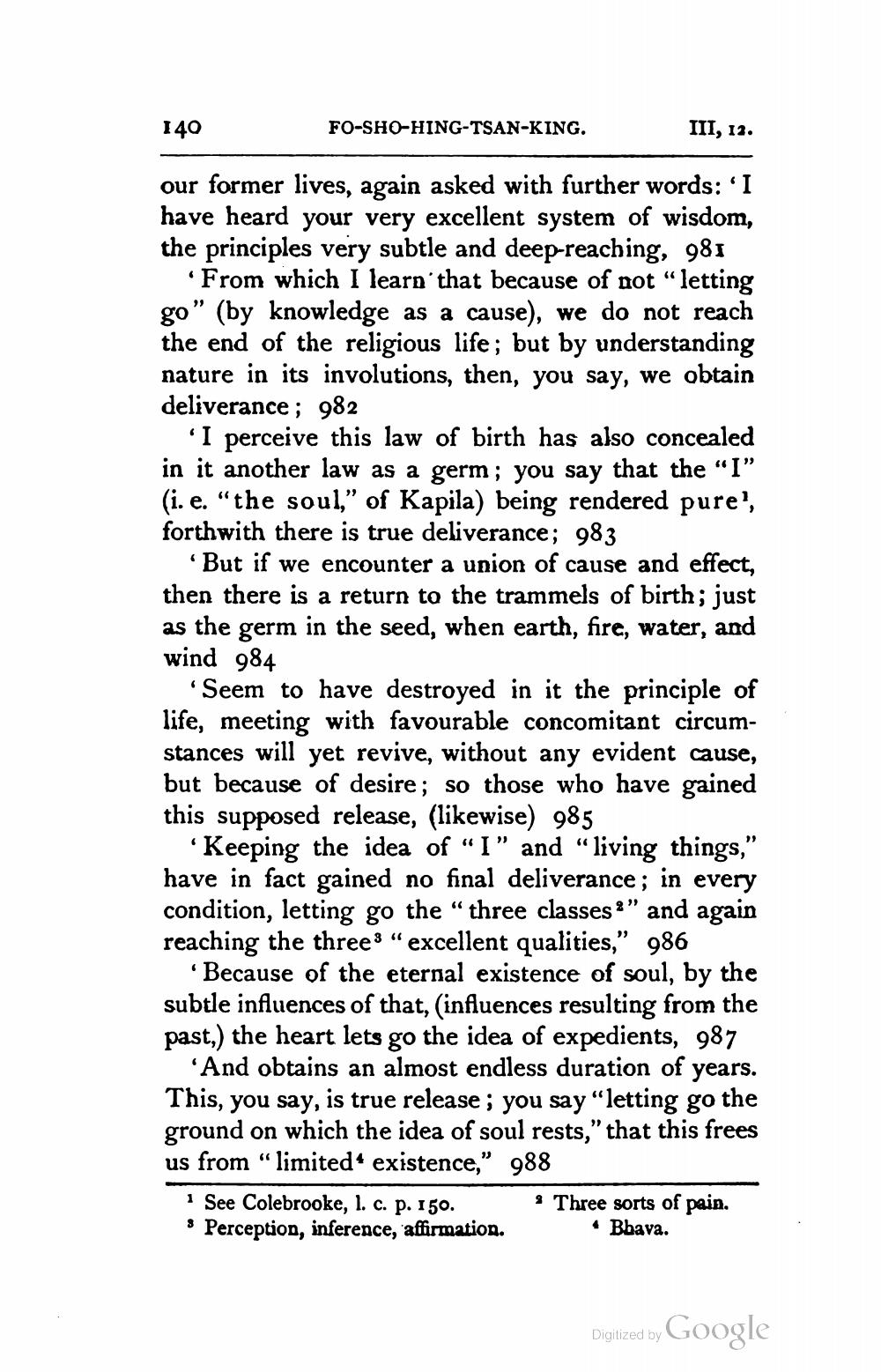________________
III, 12.
our former lives, again asked with further words: 'I have heard your very excellent system of wisdom, the principles very subtle and deep-reaching, 981
'From which I learn that because of not "letting go" (by knowledge as a cause), we do not reach the end of the religious life; but by understanding nature in its involutions, then, you say, we obtain deliverance; 982
140
FO-SHO-HING-TSAN-KING.
'I perceive this law of birth has also concealed in it another law as a germ; you say that the "I" (i. e. "the soul," of Kapila) being rendered pure', forthwith there is true deliverance; 983
'But if we encounter a union of cause and effect, then there is a return to the trammels of birth; just as the germ in the seed, when earth, fire, water, and wind 984
'Seem to have destroyed in it the principle of life, meeting with favourable concomitant circumstances will yet revive, without any evident cause, but because of desire; so those who have gained this supposed release, (likewise) 985
'Keeping the idea of "I" and "living things," have in fact gained no final deliverance; in every condition, letting go the "three classes" and again reaching the three3 “excellent qualities," 986
'Because of the eternal existence of soul, by the subtle influences of that, (influences resulting from the past,) the heart lets go the idea of expedients, 987
'And obtains an almost endless duration of years. This, you say, is true release; you say "letting go the ground on which the idea of soul rests," that this frees us from "limited existence,"
988
1 See Colebrooke, l. c. p. 150. › Perception, inference, affirmation.
2 Three sorts of pain. • Bhava.
Digitized by
Google




